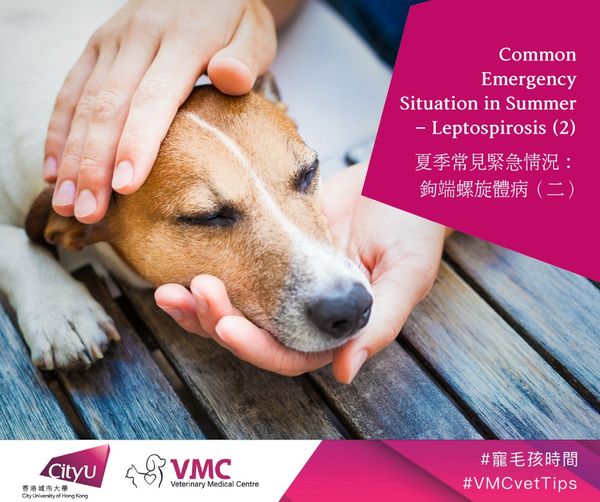
As mentioned before, the initial symptoms of leptospirosis can be similar to those of ordinary gastroenteritis. If a dog is suspected of being infected, please seek medical advice immediately. Leptospirosis can be challenging to diagnose definitively and multiple diagnostic tests will be needed to aid in diagnosing the disease.
The doctor will collect blood for a comprehensive blood panel (to assess for liver and kidney dysfunction, among other things) and collect urine for urinalysis and a PCR test, which specifically checks for Leptospira bacteria. An abdominal ultrasound may be recommended to help rule out other possible causes of the symptoms that are present. Early detection of the disease and intensive medical therapy will give your dog a better chance of survival.
Incubation period
The incubation period is usually 5 to 14 days, with a range of 2 to 30 days.
Management
Leptospirosis can be treated with antibiotics to kill the Leptospira bacteria
Intensive medical treatment may also be required if your dog develops kidney failure or liver dysfunction
Prevention
* Vaccination - There are two types of leptospirosis vaccination available. One forms part of the annual DHPPiL combination vaccine that all dogs receive, this protects against 2 serovars (types) of Leptospira bacteria. It is ineffective as a preventative treatment against the other serovars of Leptospira found in Hong Kong. The other current leptospirosis vaccination in Hong Kong is called Leptovax 4, which protects against 4 different serovars of leptospirosis. Upon receiving the vaccine, dogs will develop antibodies to the Leptospira bacteria, which will boost an immune response during infection. It is possible for dogs who have received the leptovax 4 to still contract the disease, however they will have a better chance of fighting the infection than non-immunized dogs.
* Avoid contact with fresh water, soil and vegetation that might be contaminated with the urine of infected animals, especially rodents. Never touch a dead animal with bare hands or allow your dog to come into contact with it.
* Wash or shower after exposure to contaminated water or soil.
* Wear appropriate protective clothing and footwear when participating in recreational or work activities that might result in contact with contaminated soil or water.
* Perform hand hygiene frequently. Wash hands with liquid soap and water after handling pets or animals, and disinfect contaminated areas.
* Do not allow your dog to drink from or play in natural water sources. Take bottled water on walks to ensure your dog still has access to drinking water
* People can contract the disease via exposure to water sources, such as rivers, ponds or lakes that are contaminated with the urine of infected animals, therefore avoid swimming or wading in potentially contaminated water.
* Eliminate rodents and keep the community and home environment clean
Appointment/Enquiry:
3650 3000 (Mon-Sun: 9:00am – 7:00pm)
Address:
G-2/F, Trinity Towers, 339 Lai Chi Kok Road, Sham Shui Po
Online booking for revisit with primary care veterinarians or vaccination:
https://www.cityuvmc.com.hk/en/online-booking